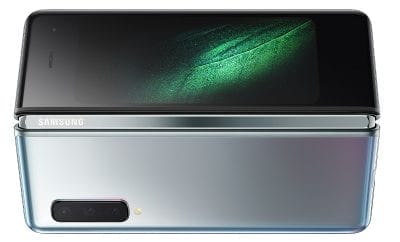Lifestyle
Phone Wars: iOS vs. Android
Smartphones have essentially become personal computers in our pockets, and choosing your device has become an important decision with many factors to weigh in. Many smartphone operating systems have come and gone (looking at you Blackberry OS and Windows Phone), but now that the dust has settled, two reign supreme in the smartphone industry – Apple’s iOS and Google’s Android. Let’s break the two down and see which one best suits your needs.
Performance
What good is a phone if it can’t keep up your usage demand throughout your day-to-day activities? An important aspect that drives performance is a little thing called random access memory, or RAM. When it comes to flagship phones, Android devices typically come with at least 4GB of RAM maxing out at 8GB, which is quite a bit for a smartphone. iOS devices typically come with less RAM, with the iPhone XS and XS Max clocking in at 4GB. Despite having less RAM, iOS is known for being much better when it comes to app optimization, allowing for many apps to be opened at once.
Winner: iOS

Photo by Przemyslaw Marczynski on Unsplash
Apps
iOS and Android both have millions of apps to choose from, though each has their own characteristics. The Google Play Store has a little less than 1.5 million apps than Apple’s App Store, but where it lacks in content, it makes up for it with its open-source nature. The Google Play Store has much less restriction when it comes to available content, unlike the App Store, which maintains a strict hold on what is available on its platform. However, iOS has a leg up when it comes to quality, with top-tier developers creating apps for the App Store on a regular basis.
Winner: iOS
Customizability
iOS is pretty much a brick wall when it comes to allowing users to customize it to their liking. The home screen has essentially remained the same, save for some design tweaks. Users are left with being able to customize their wallpaper and some widgets in the control center, but that’s about it. Android, on the other hand, is the king of customization. Google has always allowed users to have deep customization ability, with a high degree of freedom baked into the operating system from the get-go.
Winner: Android

Photo by Michael Mroczek on Unsplash
Affordability
After Apple CEO Tim Cook got up on stage to announce the new iPhone XS and XS Max, Apple fans held their breaths eagerly waiting how much these shiny new devices would cost. After hearing the top-of-the-line model would cost nearly $1500, people let out a collective “yeah right” all over social media. Yes, there are cheaper iOS models for all sorts of budgets, Android flagships are priced at much more reasonable rates when compared to the $1500 Max.
Winner: Android
Value
Android has a much greater range of cheap and affordable phones, but iPhones have a much better value in the long run. iPhones have shown to run well even 3-4 four years after being released. Thanks to a steady stream of iOS updates that optimize performance, it makes your iPhone purchase, albeit expensive, a much better value in the long run. Plus, there is a burgeoning aftermarket for iPhones if you wish to upgrade to a new model. Overall, iOS ages much better over a prolonged period of time
Winner: iOS
Conclusion
While iOS take the win in the overall, both operating systems are exceptional and have defining characteristics for all smartphone owners. If you’re looking for optimal customizability and open-source freedom while still maintaining decent affordability, Android should be your go-to. When it comes to the best performance and overall value, iOS is the way to go.




3 Comments